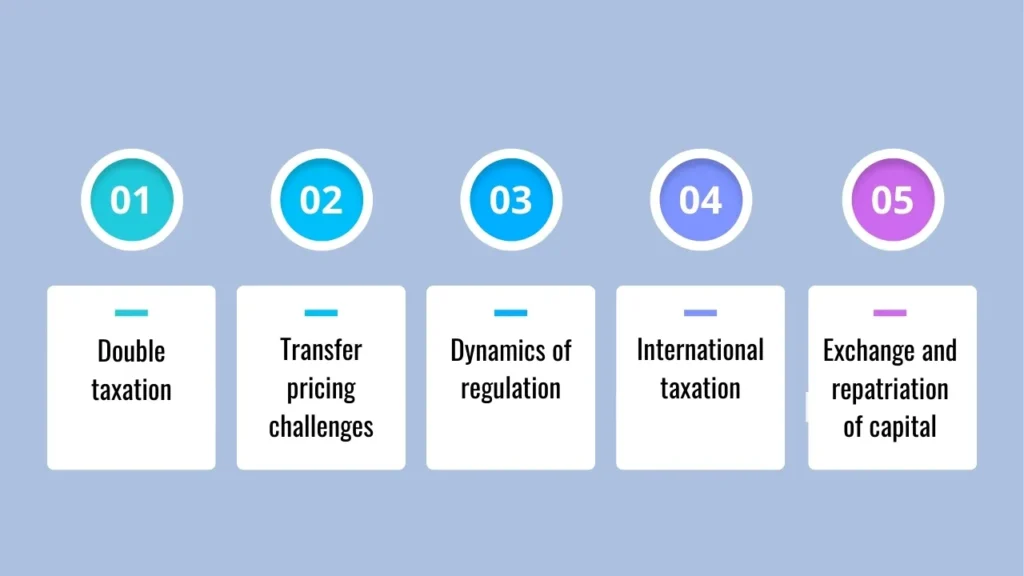For companies and individuals, the management of international finances and taxation in today’s connected world can be a headache. International Tax Advisory: Cross-Border Planning and Compliance, more than ever, companies, individuals and expatriates around the world are seeking expert advice on the constantly evolving area of international tax law.
It is essential, to be not only compliant but also in control of any possible savings, when you operate under multiple tax jurisdictions and different regulations as well as authorities’ tougher look at your business.
This article describes the underlying issues of international tax advisory, cross-border planning considerations, compliance requirements and how businesses and individuals may gain from proactive advice.
Understanding International Tax Advisory
International tax advisory refers to professional advice on the design of tax mechanisms, statutes, and obligations in more than one jurisdiction.
Because of the disparity in tax regulations from one place to another, advice helps in understanding how to mitigate these risks, eliminate double taxation and the accompanying hassle, and adhere to local as well as international tax obligations.
Critical Components of International Tax Advice:
- Tax structuring of international transactions and investments
- Structuring corporate entities across countries
- Managing transfer pricing regulations
- Ensuring adherence to international reporting protocols
- Assisting with expat tax planning for people
Considering risks and opportunities, such tax advising services make it possible for companies to remain competitive in the world market.
The Importance of Cross-Border Planning
Cross-border tax planning is important when a person or business has activities in more than one country. Lack of other legal planning can put corporations at risk for being fined and overtaxed.
There are many reasons why cross-border planning is a necessity:
- Relief from Taxation of Same Income
- Leveraging tax treaties between countries
- Organisation of the business with tax optimisation
- Strategic profit and loss alignment between jurisdictions
- Prevent disputes with the government by being tax compliant
Tax accounting is an essential aspect which impacts international finance, as countries have different tax laws. For instance, multinational firms often employ tax treaties in order to cut down on withholding taxes paid on dividends, royalties or interest payments.
Compliance in International Taxation
Compliance is the basis for International Tax Advisory. With tax authorities worldwide increasing the temperature, non-compliant entities face heavy penalties, reputational harm and law suits. Firms of advisors assist companies with maintaining compliance by:
Keep track of worldwide laws such as, for instance, OECD recommendations and FATCA
- Truthful tax reporting in different regions
- Implementing transparent transfer pricing documentation
- Advice on- BEPS (Base Erosion and Profit Shifting) Plan.
- Being there for businesses in audits and inquiries
Efficient tax advice makes it possible for corporations to meet their tax obligations while at the same time retaining credibility with the public.
Common Cross-Border Tax Challenges

What businesses and people are consistently are slow to adapt to:
- Double taxation: The payment of taxes on the same income by two countries.
- Transfer pricing challenges: Pricing transactions between entities within a multinational group.
- Dynamics of regulation: Keeping pace with numerous changes in tax legislature.
- International taxation: The need to satisfy tax obligations in different countries for internationally mobile workers.
- Exchange and repatriation of capital: Streamlining the flow of funds without tax complications.
Here it is – a simple comparison of two key issues for multinationals:
| Tax Challenge | Benefits to Companies | Role of Tax Advisory |
|---|---|---|
| Double Tax | Profit decline due to income double taxed | Through treaties and structures, ensure income is not taxed twice |
| Transfer Pricing | Increased focus, chances of disputes | Documenting appropriately—Set up fair value-based models |
They tell us that tax advisory prevents your money being drained.
Effective International Tax Advisory: Key Strategies for Success
The organization said in a statement that companies and individuals need to take an unnecessarily proactive approach if they are to be successful at cross-border operations. Advisory experts recommend:
- Tax Treaty Utilization: The use of treaties to reduce withholding taxes.
- Transfer Pricing Practices: Applying arm’s length prices to intercompany transactions.
- Entity Structure: Establishing a structure in a tax-friendly jurisdiction.
- Expat Tax Planning: Effective structuring of expatriate salaries, benefits, and perks.
- Compliance Policies: Documentation must be kept and reports must be filed on time.
- Periodic Risk Assessments: Examination of fines, penalties, and compliance with risk assessments.
These efficiencies are necessary for financial sustainability in the long term.
Technology and the tax adviser
The current international tax advice is also becoming computerised. Sophisticated data systems, tax software and digital compliance solutions enable businesses to manage multinational reporting. Technology supports:
- Accurate real-time tax calculations
- Automated compliance tracking
- Cross-border transaction audits
- Reduce risk in complex tax filings
Human intelligence can never be replaced but digital solutions do a lot to shore up global compliance.
Benefits of International Tax Advisory
There are great advantages in getting expert tax advice:
- Minimizes unnecessary tax liabilities through creative structuring
- Deters penalties and fines from non-compliant behavior
- It helps in being more transparent and trustworthy to the police/securities forces.
- Builds confidence for cross-border M&A and expansion
- Assists expatriates and investors in controlling worldwide tax risk
These results help in the better functioning of international services and financial viability.
Final Words
In the fast-changing world of international tax, International Tax Advisory: Cross-Border Planning and Compliance is a must for corporations and individuals engaged in cross-border business. And as tax legislation becomes more elaborate, proactive tax advisory serves as a solid prevention against risk, double taxation, and compliance issues.
For multinationals, small exporters, or individual expatriates, the right strategies can lead to long-term stability and sustainable growth.
Frequently Asked Questions:
1. What factors are relevant in international tax advisory?
International tax advisory advises its clients on how to handle taxes in multiple countries and stay compliant while saving on taxes.
2. What is cross-border tax planning for business?
It avoids double taxation, minimizes risks, and allows for the most optimal structuring of cross-border transactions.
3. What is the significance of compliance in international taxation?
Compliance guarantees that companies don’t face legal penalties, credibility loss, or any challenges from wherever and with whoever they work.
4. What problems arise if you are a business and do not get tax advice?
They are dealing with double taxes, legal clashes, big fines, and bad tax regimes.
5. Can use of tax advisory services benefit the expatriates?
Certainly, foreign workers can expect support when it comes to structured salary planning (and tax treaty advantages), as well as ensuring they are compliant with multi-country tax legislation.

Leave a Reply